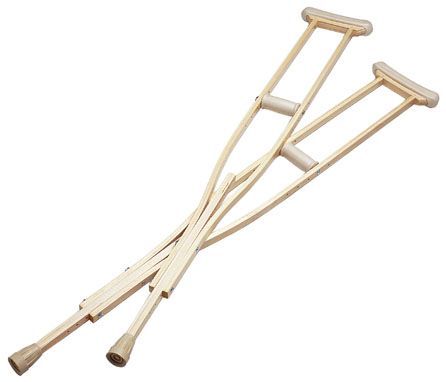I was fairly athletic as a child, and still am pretty active. And I consider myself to be fortunate not to have ever broken any bones. (I do remember when I was about 13, feeling slightly envious of all the attention my friend was getting after she broke her leg and had to wear a full cast for what seemed like forever. Crutches seemed like fun back then.)
But when I learned that one in two women 50 or over will break a bone in their remaining lifetimes, I realized that strong bones should no longer be taken for granted.
Osteoporosis is nicknamed "the silent thief" for a good reason: it sneaks up on you and doesn't show up until bones start to break. Scary fact: women can lose up to 20 percent of their bone density in the five to seven years after menopause begins.
Needless to say, I'm no longer eyeing crutches as something "fun," but instead, something to avoid.
Now more than ever, it's important to know your risk of developing this disease.
Osteoporosis is preventable! One important thing to remember is your Vitamin D: it aids in the absorption of calcium. Experts recommend between 800 and 1,000 international units daily for most adults 50-plus. You may need more if testing deems you deficient.
Calcium supplements and calcium-rich foods matter, too. And so does exercise.
And make sure to incorporate some balance exercises into your routine. These will help prevent a fall, a common cause of broken bones.
For more detailed information on osteoporosis, click here.
HealthyWomen content is for informational purposes only. Please consult your healthcare provider for medical advice, diagnosis or treatment.

Everything you need to know about women’s health — in one place.

6 Tips for True Self-Care in the New Year
Pedicures, massages and bubble baths are great — but don’t forget to take these 6 steps to true self-care
January, 02 2025
Your WellnessWomenTalk: The 411 on Femtech Questions
In this episode of WomenTalk, we’ll talk about all things femtech.
December, 23 2024
VideosHappy Holidays from HealthyWomen
It’s the most wonderful time of the year to take care of yourself
December, 23 2024
Your WellnessDoctors Shrugged Off My Cough Because I Wasn’t a Smoker — but I Had Stage 4 Lung Cancer
I’m not the only never smoker with lung cancer, and physicians need to do better
December, 19 2024
Real Women, Real Stories